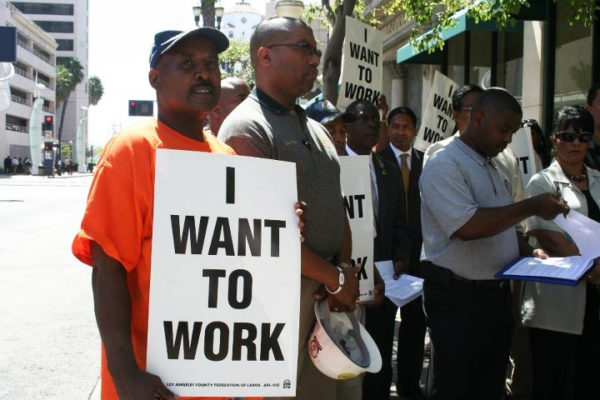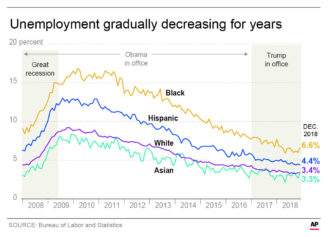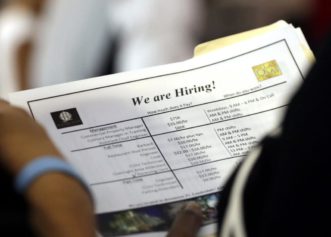The 3.8 million Americans who have been out of work for more than six months face a much harder time than the short-term unemployed in finding new jobs, largely because employers seem to discriminate against them, according to new research findings published in a New York Times story.
While the unemployment rates for those who have been out of work for less than 14 weeks has returned to where they were in 2007, before the Great Recession, the rate for the long-term unemployed (more than 26 weeks) is more than twice as high as it was in 2007.
And the problem has been exacerbated by the refusal of Congressional Republicans to extend long-term unemployment insurance—meaning the maximum duration of unemployment insurance payments fell in January from as long as 73 weeks to 26 weeks in most states.
The Times story highlights efforts by researchers to tackle the vexing problem of why employers so blatantly discriminate against this population.
Alan B. Krueger, the former chairman of President Obama’s Council of Economic Advisers, issued a new report with several co-authors revealing that only one in 10 workers who had been unemployed, over an extended period of time in a given month between 2008 and 2012, had returned to full-time work a year later.
While there’s a possibility the long-term unemployed might grow discouraged and reduce the intensity of their job searches, there’s substantial evidence that employers discriminate against them. A study by researcher Rand Ghayad of the Massachusetts Institute of Technology found that businesses were more likely to call back a working candidate with no relevant experience than a long-term jobless candidate with relevant experience.
“There is this very pressing issue,” Ofer Sharone, a sociologist at the Massachusetts Institute of Technology, told the Times, “and there is this great gap in knowledge about what to do about it, both for policy makers and these individuals.”
Jesse Rothstein, an economist at the University of California, Berkeley, has that a domino effect of misery attends long-term unemployment: the average worker’s income is halved when he loses his job; when his unemployment insurance ends, his income drops again; the result is the share of such families falling below the poverty line doubles.
While the plight of the long-term jobless has largely faded from the policy conversation in Washington, D.C., MIT sociologist Sharone has gotten together with colleagues to form the Institute of Career Transitions to help understand what workers and policy makers should do. One of its initial efforts is to use long-term unemployed workers as guinea pigs of sorts, comparing the outcomes for workers assigned career coaches to the outcomes of those not offered that form of help.
While participants in the study still haven’t found many jobs in the early stages, they report being much more motivated and positive about their lives and searches with the aid of a career coach.


